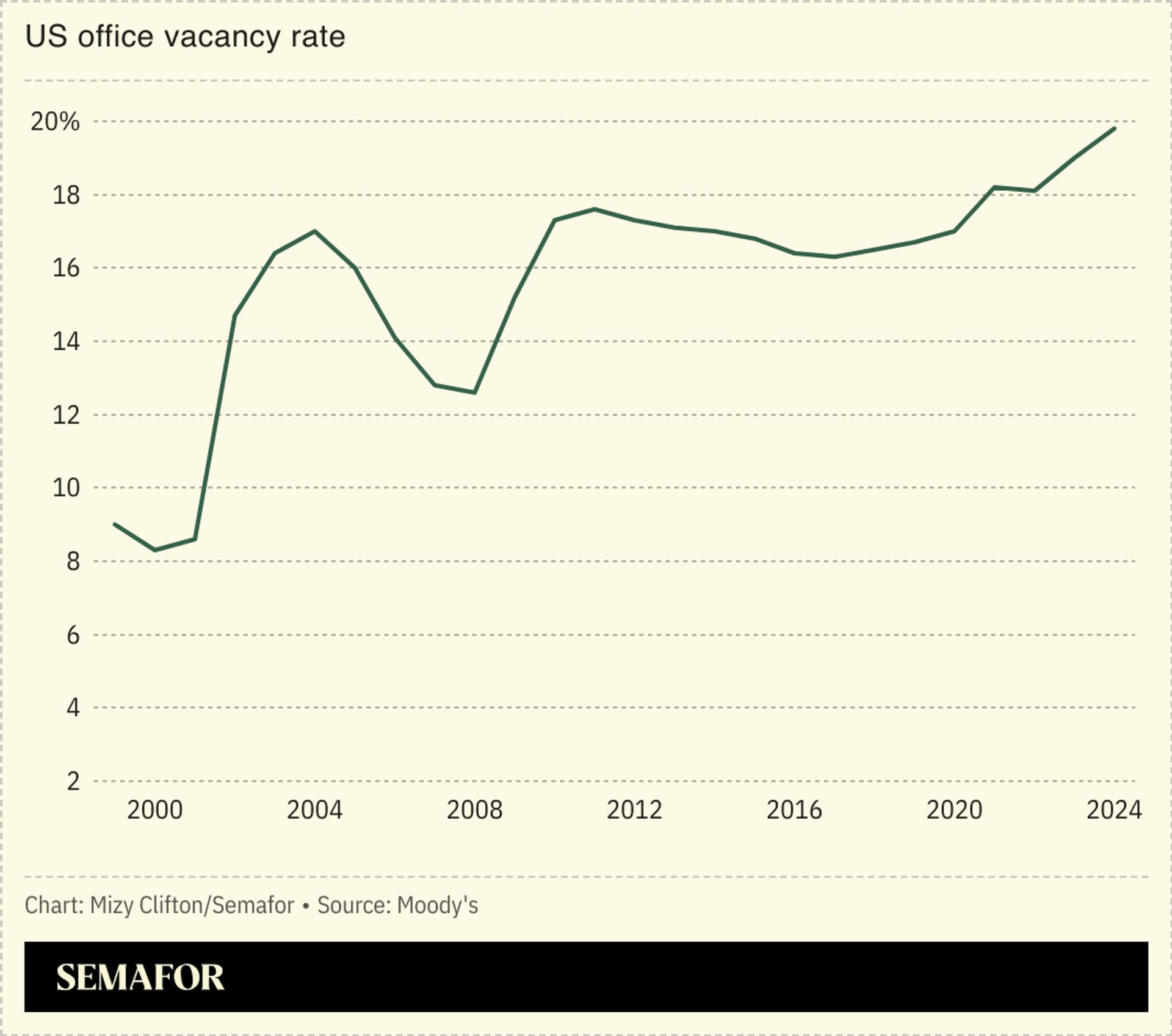The News
Almost half of tech giant Dell’s full-time US workforce rejected the firm’s return-to-office push, despite being told they’d be ineligible for promotions or role changes if they worked from home, according to reporting by Business Insider. Dell had ordered workers back to the office for roughly three days a week if they wanted to be eligible for such perks.
Some workers said they had to work remotely because their local offices had been shuttered, or that the closest office was too far away. Others said the benefits of remote working outweighed what Dell was offering if they returned.
The company’s mandate comes as a wave of tech companies have tried to force, cajole, or tempt workers back into offices, some more severely than others.
SIGNALS
Home workers may be more productive — but not always in a good way
Bosses’ concerns about remote workers not being productive may be unfounded: They tend to work longer hours, often without breaks, as well as evenings and weekends, and are less likely to take time off sick, according to a review of nearly 2,000 academic papers investigating remote work. But there may still be a problem of presenteeism among remote workers — workers seemingly showing up but not engaging — which may increase the risk of burnout and ultimately reduce productivity, the review authors noted. Hybrid work may offer a more positive arrangement; 86% of hybrid workers reported feeling less burned out than when they worked only in office, according to The Guardian.
Workplace environments may be suffering the most
Hybrid and remote work may have helped individuals’ work/life balance, “but there is no substitute for the buzz and the chatter of the pre-pandemic office,” The Economist has argued. And people who are perhaps most likely not to turn up to the office — particularly women, disabled people, minorities, and people with children — may lose out on promotions or other perks gained in part through having had more face-to-face interactions with managers. Regular online meetings don’t make up for lost casual encounters, and can lead to feelings of “virtual overload” among workers, which risks only exacerbating the problem of social disengagement.
Commercial real estate is affected by shifting work patterns

In the US, office vacancies hit a new peak in the first quarter of 2024 as commercial real estate suffered from hybrid set-ups and interest rates, Bloomberg reported. Tech hubs like San Francisco have been hit “particularly hard,” given the industry’s general embrace of hybrid and remote work, the director of UK analytics at CoStar told the Financial Times last year.

